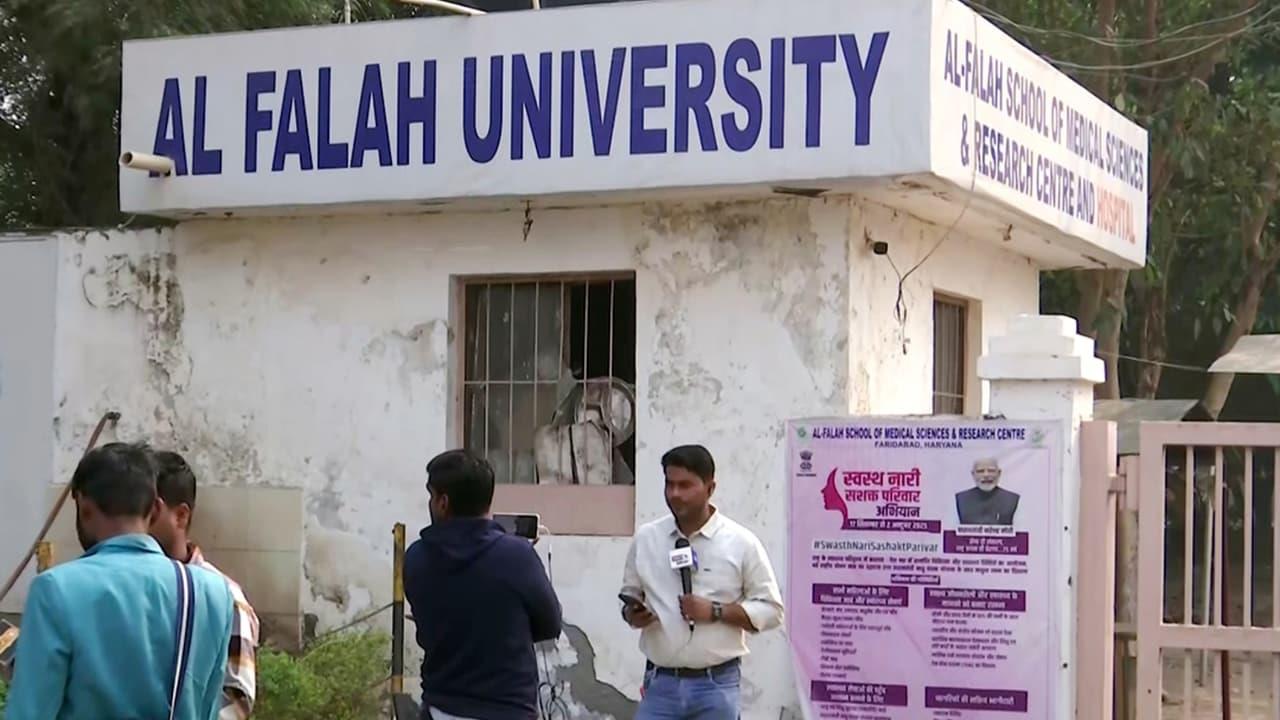
Inside Al-Falah University: How The Red Fort Blast Exposed A White-Collar Terror Network
Once a symbol of academic promise, Al-Falah University in Faridabad is now under NIA's scanner after the Red Fort blast. Three doctors linked to the campus were arrested in a“white-collar terror module” spanning Kashmir, Haryana, and UP.
Al-Falah University, spread across 76 acres in the predominantly Muslim Dhauj village of Haryana's Faridabad district, has come under investigation following the arrest of three doctors in connection with the recently exposed“white-collar terror module” and the deadly explosion near Delhi's Red Fort.
Investigators suspect that several highly educated individuals, allegedly operating under the guidance of Pakistan-backed handlers, may have used the university's infrastructure as a cover for their activities. Authorities are now probing how an academic institution transformed into what they describe as a potential refuge for radical elements.
As per information available on its website, Al-Falah University was set up under the Haryana Private Universities Act, following approval from the Haryana Legislative Assembly.
The institution began its journey in 1997 as Al-Falah Engineering College. In 2013, it secured an 'A' grade accreditation from the National Assessment and Accreditation Council (NAAC) under the University Grants Commission (UGC). The following year, the Haryana government elevated it to full university status.
Its medical wing, the Al-Falah Medical College, functions as an affiliate institution under the university's umbrella.
In its formative years, Al-Falah University was regarded as a strong academic alternative to Aligarh Muslim University (AMU) and Jamia Millia Islamia, particularly for students from minority communities seeking affordable higher education.
Located roughly 30 kilometres from Delhi's Jamia Millia Islamia, the campus attracted aspirants from across northern India who were looking for quality education close to the national capital.
Al-Falah University operates under the Al-Falah Charitable Trust, which was founded in 1995. The trust is led by Chairman Jawad Ahmad Siddiqui, Vice-Chairman Mufti Abdullah Qasimi M.A., and Secretary Mohammad Wajid DME.
The university's leadership includes Vice-Chancellor Dr Bhupinder Kaur Anand and Registrar Prof (Dr) Mohammad Parvez.
The institution comprises three main colleges - the Al-Falah School of Engineering and Technology, Brown Hill College of Engineering and Technology, and Al-Falah School of Education and Training. The university also operates a 650-bed hospital on campus that provides free medical care to patients from surrounding areas.
Police sources confirmed that teams conducted extensive searches across the Faridabad campus on Tuesday. Multiple faculty members, administrative staff, and students were questioned to gather information related to the suspected terror links.
On Monday evening, a high-intensity explosion tore through an explosive-laden Hyundai i20 near Delhi's Red Fort metro station, killing 12 people and injuring several others.
Officials identified the suspected driver as Dr Mohammad Umar Nabi, a Pulwama-based assistant professor at Al-Falah University.
The incident occurred just hours after security agencies arrested eight individuals - including three doctors linked to the university - and seized nearly 2,900 kilograms of explosives in one of the largest anti-terror operations in recent years.
The module, according to investigators, was linked to Jaish-e-Mohammed (JeM) and Ansar Ghazwat- Hind, with operations spread across Jammu & Kashmir, Haryana, and Uttar Pradesh.
Among those arrested was Dr Muzammil Ganaie, another faculty member at Al-Falah University, who allegedly played a significant role in facilitating the group's activities.
Investigators are now exploring whether the university's premises, resources, or personnel were misused for terror financing, recruitment, or covert communications. The National Investigation Agency (NIA) is expected to take over the case as the scope widens across multiple states.
What was once a respected institution for higher learning is now at the centre of an alarming probe into the radicalisation of educated professionals - a case that blurs the line between academia and extremism.
Legal Disclaimer:
MENAFN provides the
information “as is” without warranty of any kind. We do not accept
any responsibility or liability for the accuracy, content, images,
videos, licenses, completeness, legality, or reliability of the information
contained in this article. If you have any complaints or copyright
issues related to this article, kindly contact the provider above.


















Comments
No comment